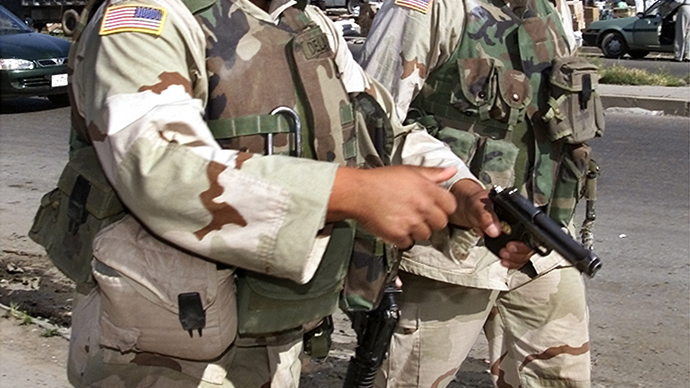International violation? US Army considering hollow point bullets for pistols

In a dramatic shift for the US military, the army is considering the use of bullets that can expand and break up when striking a target to make new pistols more lethal, raising concern that doing so would violate international law.
According to the Army Times, the Pentagon recently reviewed the use of “special purpose ammunition” and determined the army could look into enabling its next-generation XM-17 pistol to use various kinds, including hollow point bullets. Currently, only ball ammunition is used in the army.
The difference is that while ball ammunition penetrates deeper into an enemy when they are struck, hollow point can break up once they hit an individual, destroying a larger area of tissue and generally producing more damage. As a result, they are more lethal.
The other difference is that, unlike ball ammunition, expanding bullets were banned under the 1899 Hague Convention. The bullets are not used by NATO members, either.
NEW: Army considers hollow-point bullets for new pistol — and it's big deal http://t.co/x4BKEz19ds | By @kylejahnerpic.twitter.com/VUtQ6rjdjF
— Andrew deGrandpre (@adegrandpre) July 9, 2015
Richard Jackson, the special assistant to the US Army Judge Advocate General for Law of War, acknowledged to the Army Times that the Pentagon’s new posture marks "a significant re-interpretation of the legal standard." However, he insisted that any potential use of such ammunition by the US would not be a violation of international law.
"There's a myth that (expanding/fragmenting bullets) are prohibited in international armed conflict, but that doesn't make any sense now," he told the news outlet.
Jackson went on to say that while the 1899 Hague Convention prohibited the use of expanding bullets internationally, the ban doesn’t actually apply to the US because the US never signed it. He also noted local law enforcement agencies around the world are allowed to use them.
READ MORE: Japan 'interested' in joining NATO missile building consortium – report
“Very few states have signed [the Hague Convention] and the United States is not one of them,” he said to the Washington Post. “Law enforcement agencies use hollow points all over the world, so if it doesn’t violate the human rights standards that applies these days, why are we applying those standards on the battlefield?”
Even Article 23 of the 1907 Hague Convention, which bans “arms, projectiles or material calculated to cause unnecessary suffering,” does not apply, Jackson said, because using hollow points on the battlefield in certain situations would be more humane than continuing to use current standards.
“There are actually humanitarian benefits from the use of this type of ammunition,” he told the Post. “By staying in the target there isn’t as many collateral effects….it will not go through the target into a bystander nearby or someone in the next room.”
The Army itself echoed this sentiment in a statement, saying, "The use of this ammunition supports the international law principles of preventing excessive collateral effects and safeguarding civilian lives.”
The Army’s argument is, essentially, that since modern warfare often takes place in urban environments, hollow point bullets would minimize collateral damage. Ball ammunition, because it can penetrate tissue more deeply, can as a result blow through a target and potentially hit others nearby. Ball ammunition can ricochet and hit other people as well. Potentially, these sorts of risks would be reduced with hollow point bullets.












